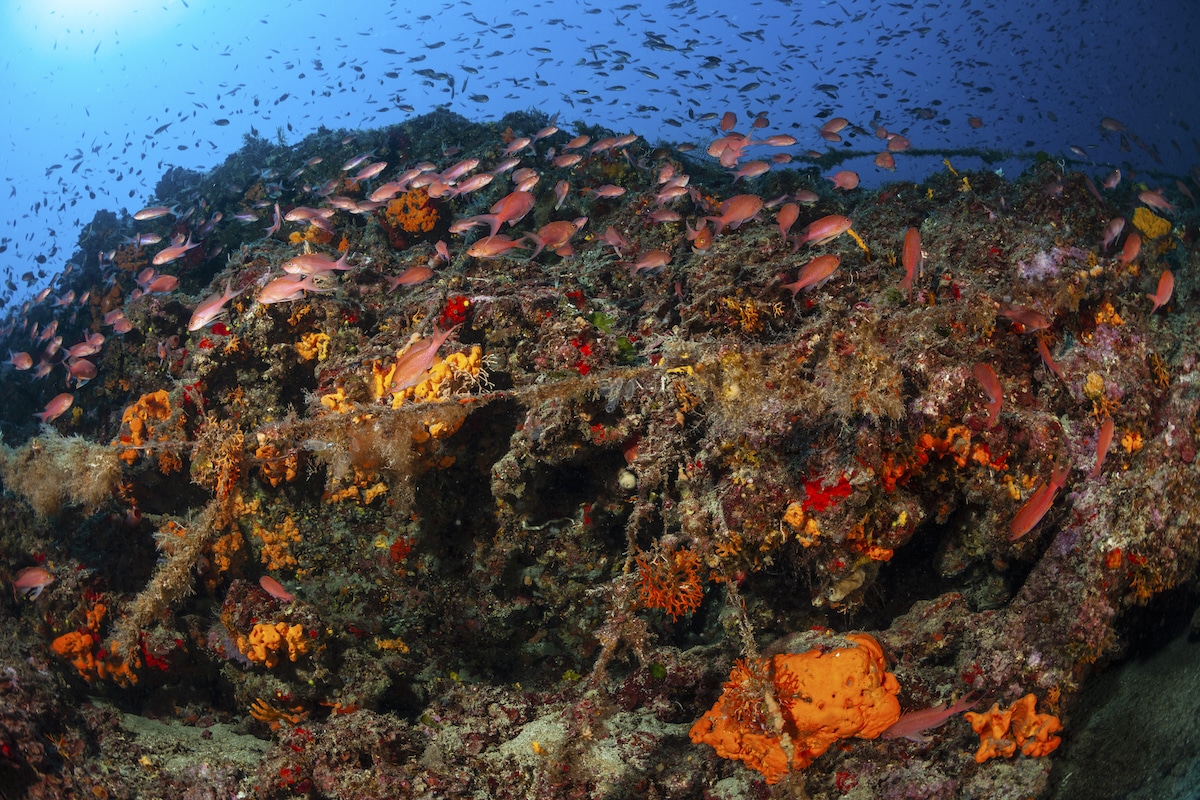Ecowatch
Greece to Invest $830 Million for Marine Conservation

A coral reef in Greece’s Ionian Sea. ultramarinfoto / iStock / Getty Images Plus

Why you can trust us
Founded in 2005 as an Ohio-based environmental newspaper, EcoWatch is a digital platform dedicated to publishing quality, science-based content on environmental issues, causes, and solutions.
Prime Minister of Greece Kyriakos Mitsotakis has announced plans to invest 780 million euros (about $829 million) for marine conservation and pollution cleanup. The country will pursue 21 marine conservation initiatives with the money.
As reported by Reuters, some of the initiatives will include the development of two marine parks: one will be located in the Ionian Sea, and the other park will be established in the Aegean Sea. The exact borders will be determined following a scientific review, expected to be complete by 2025. The parks will cover about 32% of the country’s waters, Reuters reported.
The prime minister is expected to share more details on the country’s marine conservation plans during the Our Ocean conference, taking place in Athens from April 15 through April 17.
According to the Our Ocean conference website, the conference will focus on sustainable shipping and tourism as well as ways to minimize and clean up marine plastics and microplastics. The conference will also address offshore renewable energy.
“Quietly but methodically, Greece is playing a leading role in the defence against dramatic climate changes, which are proven to affect every region and every activity,” Mitsotakis said, as reported by the eKathimerini newspaper.
With 29,417 islands and over 20,700 kilometers (over 12,862 miles) of coastline, Greece relies on the seas surrounding its islands. Marine conservation is important for the country’s culture and economy, but Mitsotakis also noted that efforts to protect the seas around Greece will contribute to the country’s efforts to curb the effects of climate change.
Marine waters are an important carbon sink, absorbing about 25% of carbon emissions and trapping 90% of heat from these carbon emissions, according to the United Nations. Further, these waters provide about 50% of our oxygen.
However, increasing carbon emissions from human activities mean oceans are absorbing more carbon and trapping more heat, causing problems such as record-high sea surface temperatures, ocean acidification and coral bleaching and die-offs.
In addition to the impacts of climate change, marine waters are threatened by plastic and microplastic pollution, which can disrupt ecosystems as marine life mistake pollution for food. Chemical runoff further threatens marine biodiversity.
Greece plans to address some of these ocean conservation and climate concerns through Marine Protected Areas, sustainable fisheries, offshore wind development, enhanced maritime security, decarbonization of maritime transportation and sustainable tourism models. Greece also plans to reduce plastic pollution by 50% and microplastic pollution by 30% by the end of this decade.
“Decreasing plastic pollution and accelerating the transition to a circular economy is the way forward,” Our Ocean reported in a press release. “The Our Ocean Conference supports the shift towards a more holistic approach to prevent and control anthropogenic pollution that ends up in the ocean. Joint efforts, synergies and cooperation between all involved stakeholders are needed to turn the tide.”
Subscribe to get exclusive updates in our daily newsletter!
By signing up, you agree to the Terms of Use and Privacy Policy & to receive electronic communications from EcoWatch Media Group, which may include marketing promotions, advertisements and sponsored content.
Source
Disclaimer: No copyright infringement intended. All rights and credits reserved to respective owner(s).












